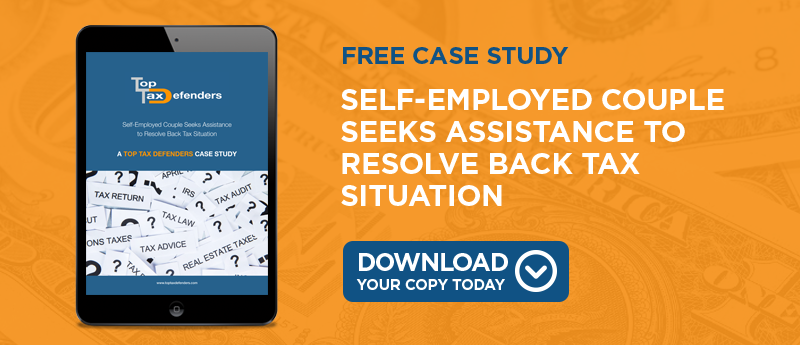[Editor's Note: This article was originally published in November 2012 and has been updated for accuracy and comprehensiveness.]
Many taxpayers who owe large amounts of back taxes to the IRS set up IRS installment plans in an attempt to clear up their accounts. These installment plans can be a convenient way to pay off back taxes without putting an unnecessary strain on your budget. And while an IRS payment plan may seem like a good idea in theory, there are some situations where signing up for this type of plan may not be the best solution. Here are some of the advantages and disadvantages of IRS installment plans.
What is an IRS Installment Plan?
An IRS installment plan is a payment arrangement that lets you pay off your tax debt over time in monthly payments instead of all at once.
It’s like a payment plan for your taxes. If you owe the IRS money and can’t pay it in full, you can apply for an installment agreement to avoid more serious collection actions—like wage garnishment or bank levies. Under this agreement, you usually have three to five years to pay the debt in full. For this reason, the IRS generally restricts payment plans to taxpayers who owe less than a certain amount in back taxes, since these individuals are more likely to pay off their debt in the timeframe provided.
As long as the IRS approves your plan and you stick to the payments, you stay in good standing—even though interest and some penalties still apply until the full amount is paid.
(Tip: If you can pay the full balance within 180 days, you may not need a formal installment plan—just a short-term payment arrangement. Learn more about payment plans here.)
Advantages of an IRS Installment Plan
1. Avoids aggressive IRS collections
An approved installment agreement stops most collection actions—like wage garnishment, bank levies, and asset seizures—as long as you stay current.
2. Makes repayment more manageable
You can break a large tax debt into monthly payments that fit your budget, avoiding the stress of paying in full upfront.
3. Easy to apply
Many taxpayers qualify for streamlined installment plans online (if you owe $50,000 or less in combined taxes, penalties, and interest).
4. Keeps you in good standing
As long as you make payments on time and file future returns, you avoid escalating penalties or enforcement.
5. May protect credit indirectly
The IRS doesn’t report to credit bureaus, but avoiding liens and levies through a payment plan can prevent credit damage.
6. Can reduce the penalty fees you owe
For example, once you're on an approved IRS payment plan, that penalty drops to 0.25% per month (compared to 0.5% without a payment plan) while the agreement is in effect and you're in good standing.
Disadvantages of an IRS Installment Plan
Despite its obvious benefits, an IRS installment plan can also pose a few disadvantages.
1. Interest and penalties continue
Even with an installment plan, interest (and sometimes penalties) continue to accrue until the full balance is paid. This means that the taxpayer will have paid much more than the original debt by the time the total tax is paid off.
2. It’s not forgiveness
Unlike some IRS programs, installment plans don’t reduce what you owe—just how fast you have to pay it.
3. Missed payments = serious consequences
Failing to stay current can void the agreement, bringing back collection actions and possibly making the full balance due immediately.
4. A federal tax lien may still be filed
In many cases—especially if you owe more than $25,000—the IRS may still file a federal tax lien, which can impact your ability to get credit.
5. It requires financial disclosure in some cases
If your balance is high, the IRS may require full financial documentation before approving a payment plan.
You can apply online, by phone (800-829-0140) or by submitting form 9465 by mail. However, you will have to meet the following criteria:
- You owe $50,000 or less in combined taxes, penalties, and interest (individuals)
- All your tax returns are filed and up to date.
Note that for business taxes, the limit is $25,000 or less.
IRS installment plans make it easier for taxpayers to clear up their back tax debts. Finding out the advantages and disadvantages of IRS installment plans can help a taxpayer decide if this arrangement will work for his or her unique situation.





